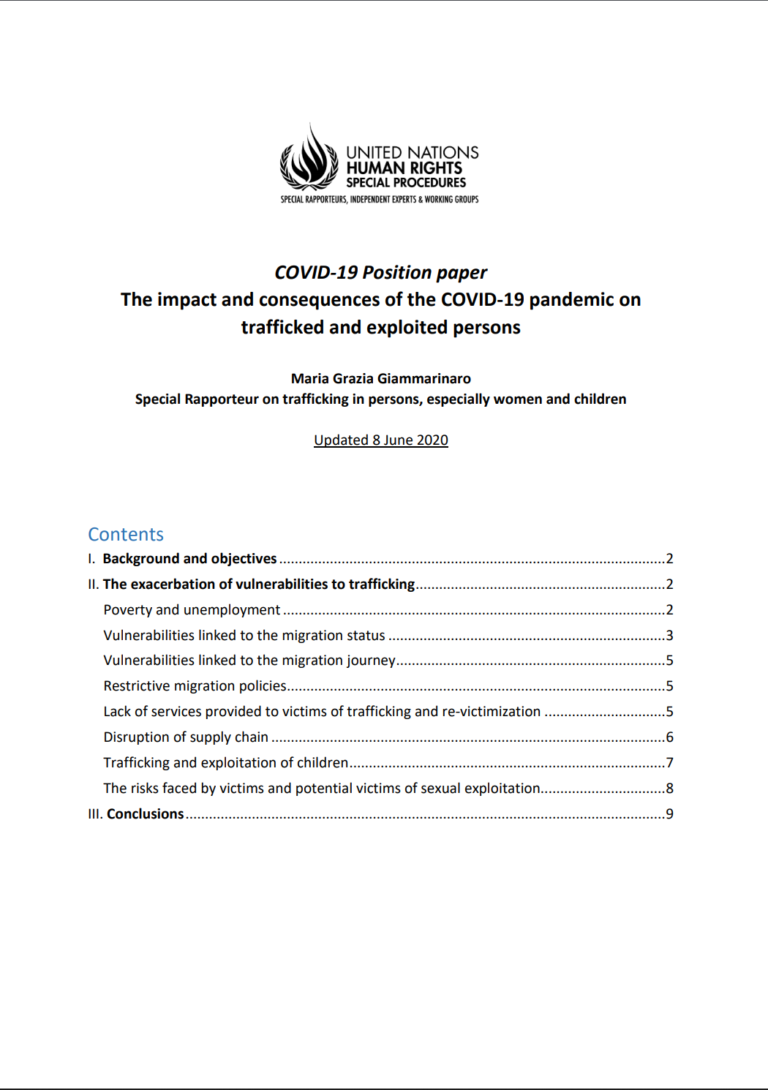The COVID-19 crisis has a potentially far-reaching, long-term negative impact on trafficked and exploited persons. Although at this stage it is not yet possible to assess the full impact of the pandemic on human trafficking, it is sure that its socio-economic consequences are already making precarious and marginalized people more vulnerable to trafficking and exploitation. The policies and measures adopted in the wake of the pandemic will be crucial in the unfolding crisis and will also shape how the labour market and, in general, societies will look like into the future. This paper aims at analyzing how the socio-economic consequences of the pandemic will exacerbate the vulnerabilities to trafficking, posing a further threat not only to actual victims, but also to people at risk of being trafficked.

